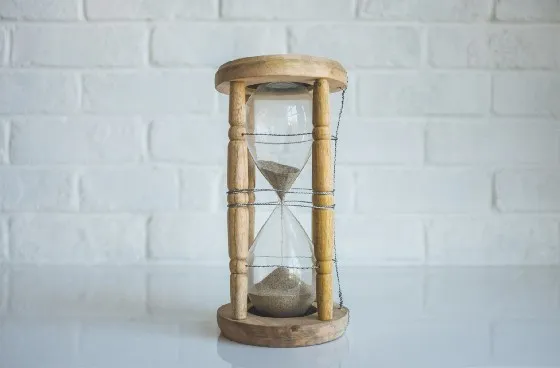We don’t all “have the same 24 hours

By itself, the statement “we all have the same 24 hours” is an empty maxim. Commonly followed up with by “What you do with it is up to you,” or “Successful people just sacrifice more than you,” the statement turns from fatuous into aggressive, blaming, cringe-worthy, condescending, and in many cases, discriminatory.
I am a person with several disabilities. One of the things that people with disabilities inherently lose access to when we become disabled is that we don’t have the same 24 hours as everyone else does. The disability time thief sees to that.

Sometimes the disability time thief steals a few moments here and there.
Getting your partner to make sure that your clothing colors don’t clash.
Getting someone to tie your tie.
Having to re-read the same paragraph two or three times before it makes sense or asking someone to explain it to you.
Asking people to repeat themselves or increase the size of the text on the screen.
Waiting for SO many things — from an interpreter to someone to open a heavy door to the availability of the electric cart at the grocery store.
Showing up early for everything so when something goes wrong you don’t end up being late. Then waiting some more when things go right.
Trying out website after website until you find one that works with your assistive technology because 98 % of them don’t.
Sometimes the disability time thief regularly and repeatedly steals small amounts of time.
Ten minutes every day to put on your shoes and leg braces.
Taking medication multiple times a day and eating (or not eating) around your medication timetable.
Repeated blood sugar tests and insulin calculations every time you put something in your mouth.
Hours Americans spend every year fighting with health insurers over payments, plus the time spent on lab work, ultrasounds, physical therapy, and doctor’s appointments.
Assembling and disassembling your wheelchair every time you want to go anywhere.
Asking for help and apologizing. Over and over and over.
The days where you can function, but only if you get 10+ hours of sleep or take a mid-day nap.
Sometimes the disability time thief steals all of your time.
The days you can’t get out of bed.
The days you spend recovering from illness or surgery.
These can be days here and there or longer stretches all the way up to permanent.
This is the #DisbilityTax.
These are not options or even responsibilities. These are things that people with disabilities have to do to stay alive. Like a thief might pickpocket your cash, lessening the amount of money you have available, the #DisabilityTax pickpockets time out of the day for people with disabilities. In my case, this has been every day, day in, day out, for more than 50 years.
It’s not just disabilities.
Being disabled is just one part of an intersectional identity. But “disability” is an identity that includes the following statistical characteristics:
People with disabilities are more likely to be in poverty. Poverty causes disability, and disability causes poverty.
People with disabilities struggle to get an equal education. When educated, they struggle to get and keep equal jobs.
People with disabilities are more likely to live alone. No one to help with chores means more burden for the person with a disability.
BIPOC identifying individuals are more likely to have poor health outcomes, which leads to higher rates of disability. Intersectional disability is more likely to have a race component.
Womxn are more likely to become disabled. Intersectional disability is more likely to have a gender component. This is due to gender bias in the allocation of scarce resources and lack of access to health-related services.
People with disabilities are more likely to live in food deserts, increasing the amount of time and resources to get healthy food.
People who identify intersectionally have all the burdens of *each* of their identities. So, the burdens faced by people who live in poverty, and identify as a woman or BIPOC also increase the #DisabilityTax.
Maybe in some worlds, everyone has the same 24 hours.
But that’s definitely not true in the world I live in.
It is ableist, racist, and sexist to believe that everyone has the same 24 hours. Be an ally to those who identify as disabled, especially disabled womxn and disabled BIPOC, and call out this ableism, racism, and sexism when you experience someone embracing this short-sighted belief.
I wrote this blog— what are you going to do?
Add a comment: